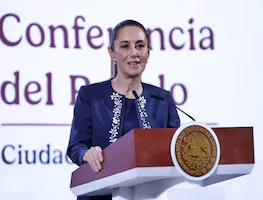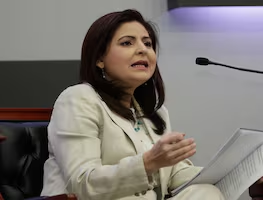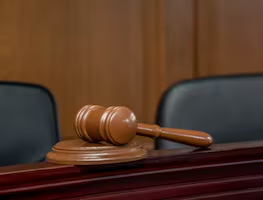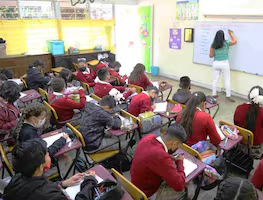Más Información

Claudia Sheinbaum, por definir asistencia presencial a reunión "urgente" de la Celac; migración, tema clave del encuentro

Noroña califica política de EU como hipócrita, racista y fascista; se solidariza con Petro ante deportaciones

Magistrada Mónica Soto propone sustituir al Comité de Evaluación del PJ; plantea someter a insaculación a aspirantes elegibles

Magistrado Reyes Rodríguez propone validar registros de aspirantes con promedio inferior a 8; excluirlos es “estigmatizante”, señala

¿Eres madre trabajadora? Puedes acceder a las guarderías del IMSS; descubre los requisitos y cómo hacerlo
Despite having the world’s largest proven oil reserves, Venezuela is undergoing a severe political , economic , and social crisis . The proximate cause is clear: oil prices fell by 70% in 2014. But the underlying problems are longstanding and policy-related .
Grave shortages are due to weak local production and a lack of foreign currency for imports , both linked to economic decisions under Hugo Chávez : currency controls aiming to protect the bolivar and enforce labour law, and subsidies on food and gasoline.
The overvalued bolivar made local goods expensive abroad and foreign imports cheap at home, damaging local producers. As many wished to avoid bureaucracy or guard against inflation, demand for cheap dollars also outstripped supply, generating a black market . Divergence between official and black-market rates incentivized acquisition of official dollars for black-market resale, whereas subsidized food and oil could be smuggled out and resold. The state picked up the tab. In a single decade , $300bn was lost on currency alone.
The response was to revive local production and foster solidarity through cooperatives and self-managed factories. But massive investment produced little return, this “ social economy ” often proving as inefficient, corrupt, and exploitative as the private sector.
Though “ 21st Century Socialist ” in name, Venezuela remained market-based and private-sector dominated , and a centrally planned economy like Cuba's was neither the aim nor the reality.
Its real driving force is oil. Aside from destabilizing development through price volatility, its sheer value provokes the " resource curse ," with exchange-rate shifts hurting exports, " petromania " in public spending, and perverse incentives undermining ethics, entrepreneurship, and efficiency.
This is nothing new, as modern Venezuela was formed around oil , splitting the country in two: " the Venezuela that benefits from oil , and the Venezuela that remains in the shadow of the oil industry ."
The benefiting elite was threatened both by Chávez’s promises to redistribute oil wealth and by a new national narrative without rich, white, educated, Western-facing heroes. The resulting rage and obstructionism led to the 2002 coup and then a devastating oil strike, at a time when Chávez was a legitimately elected reformist. He himself blamed elite implacability for his shift towards 21st Century Socialism in 2005 .
Endless claims of " economic war " now ring hollow, but politically motivated hoarding, production cuts, and manipulation of unofficial exchange rates are consistent with this no-holds-barred approach. Companies and the wealthy also had the clearest means and the most capital to invest in currency arbitrage.
But oil’s effects are graver, creating a culture of " vivir de las transferencias que el gobierno hace de la renta y no del merecido gozo de los frutos del trabajo productivo ." Divisions are so deep and trust so weak that even acceptance of the rules of the game is a distant dream: " for my friends, anything; for my enemies, the law .” This culture validates the use of any means necessary to capture as much oil wealth as possible for you and yours.
Chávez responded by putting his faith in three key areas . In himself , to circumvent opposition through discretional control over new funds and institutions. In military " hombres de confianza ," given key economic positions. And in socialism , with participatory democracy and the social economy expected to engender solidarity.
But removing even the deficient monitoring of the traditional state deepened inefficiency and corruption . Trusted lieutenants succumbed to perverse incentives to embezzle state resources. Political participation degenerated into an exchange of state benefits for political support. And levers of socialist transformation like nationalization and access to foreign currency were used instead to discipline the private sector.
Maduro
inherited this dysfunctional system from Chávez in 2013, but rather than allow democratic politics to take its course, he blocked a recall referendum, jailed opponents, usurped parliament, and reinforced political patronage, blocking any way out of this crisis.
So is socialism to blame?
Statist policies called “ 21st Century Socialism ” are implicated, but only within a divided, distrustful, conflictual society where the oil-rich state is seen as a route to personal wealth. Chávez's faith in the military and socialization of the economy to overcome these problems was not repaid. But just as capitalism was not to blame for the earlier pacted corruption and murderous repression that fuelled Chávez’s rise, socialism is not to blame for Maduro’s creeping authoritarianism .
The blame game is usually an exercise in cherry-picking to promote state intervention or the " free " market . The statist cites happy Norway before the Gulag. The free-marketeer prefers New Zealand's peaceful neoliberalisation to the murder and torture of Pinochet’s Chile.
But in reality, there are no textbook models. The issue is whether a given political economy produces desirable results for its citizens. That once was the case in Venezuela, but clearly, it is no longer so.






